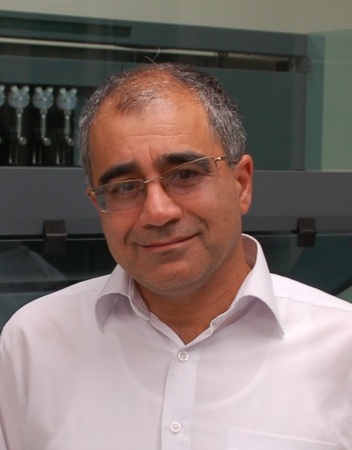About us: affiliated faculty
Co-directors Dr. Craig Garner, PhD, and Dr. Craig Heller, PhD, lead the Stanford Center for Down Syndrome Research in a new and expanded collaborative effort between researchers and clinicians who study Down syndrome and related disorders. Our top priority is to evaluate in the clinic discoveries made with animal models of Down syndrome in order to improve the health and well-being of individuals with Down syndrome. Our mission is clear and simple: create a vibrant interdisciplinary team focused on improving learning, communication and independence among individuals with Down syndrome.
The primary goals of the Stanford Center for Down Syndrome Research are:
- Promote clinical and basic research programs to understand the underlying causes of learning deficits and communication disabilities in Down syndrome.
- Develop pharmaceutical and behavioral therapies for individuals with neurodevelopmental and neurodegenerative deficits.
- Offer clinical programs for Down syndrome individuals and their families.
- Plan and execute clinical trials of promising therapies that can improve the lives of individuals with Down syndrome and their families.
Down syndrome and related topics are central to the research programs of a growing number of neuroscience labs at Stanford. For information on Down syndrome research, please contact: Prof. Craig C. Garner (cgarner@stanford.edu).
Please scroll down to learn about this talented group of scientists and doctors!
 |
Dr. Craig Garner, Co-Director, is studying how abnormal synaptic signaling underlies cognitive dysfunction in mouse models of Down syndrome, as well as drug therapies to address deficits in memory function. More » |
 |
In his lab, Dr. Craig Heller, Co-Director, studies memory and learning, sleep architecture and circadian rhythms in Down syndrome mice in the context of drug therapies. More » |
|
|
 |
Dr. Katrin Andreasson’s group investigates the molecular and cellular mechanisms of Alzheimer’s disease, with special interest in Down syndrome due to trisomy of the Alzheimer’s disease-related APP gene. More » |
 |
Dr. Heidi Feldman is a developmental-behavioral pediatrician studying language development in children with learning disabilities. More » |
 |
Using genetic tools Dr. Ting-Ting Huang hopes to learn more about how genetic modifiers modulate the disease process in Down syndrome. More » |
 |
Dr. Melanie Manning, Director of the Center for Down syndrome at Stanford's Lucile Packard Children's Hospital, is a pediatrician and clinical geneticist with a focus on children and adults with chromosome abnormalities. More » |
 |
To examine how genetic factors, brain structure and function, and environmental factors impact the development and progress of individuals with Down syndrome, Dr. Alan Reiss uses advanced research tools such as neuroimaging, genetic analyses and neurobehavioral assessments. More » |
 |
Dr. Ahmad Salehi studies molecular and synaptic mechanisms of dysfunction in mouse models of Down syndrome. He develops therapeutic strategies for restoring cognitive function with a focus on adrenergic systems. |
 |
Dr. Tony Wyss-Coray is taking advantage of mouse models to find ways in which the brain's own immune mechanisms can be used to protect against Alzheimer's disease related neurodegeneration in Down syndrome. More » |
 |
With the help of mouse models, Dr. Yanmin Yang's laboratory is defining molecular and cellular mechanisms important for maintaining and sustaining neurons that may degenerate in Down syndrome. More » |

